The postpartum ward is nearly empty. People are either not having complications, or they are not coming to the hospital. It is the planting season, the rains have begun, and everybody is needed in the fields. There is nobody to take a woman to hospital, nobody to stay with her once she arrives, and no money for transport besides.
So who is here?
An older lady, a Jehova's Witness. We removed a mass from her abdomen last Thursday. I will have to learn to bring a camera (but I know you would strangle me, Sari), because it was HUGE. Harder to deliver than a baby. She's currently doing well.
We don't have the path report yet, nor will we until the College of Medicine reopens after the holiday (remember THAT next time you are grumbling about how long they are taking with the frozen section), but the tumour looks very like ovarian cancer. We have de-bulked the tumour and omental cake, and done a TAH-BSO, but she had peritoneal seeding and studding over her liver. She had ascites, and this is already collecting again.
In Canada, she would get chemo, molecular analysis, maybe hormonal therapy.
Here, she will be sent home with painkillers.
This is my patient. This is killing me.
******
We had a lady come in, in labour.
Not unusual.
Ok, but she had already delivered on the way to the hospital; the baby, tragically, was born dead.
Twins, you say.
Well, that's what we were thinking. Push. Oh, there's the second baby, born alive. So small. Here comes the placenta. WTF?
Another head? Triplets!
Two babies born alive. 1.1 and 1.5 kg.
If you're religious, pray for them. If you're a scientist, courier us some BLES. Either way, they need help.
Update: The bigger of the two babies died the next day, of respiratory failure. There is no respirator, and the supplemental O2 only works when we have electricity, which we don't on Tuesdays.
2006-12-04
Subscribe to:
Post Comments (Atom)
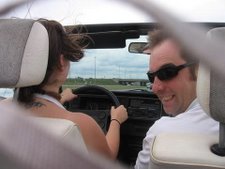
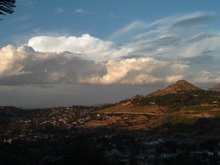
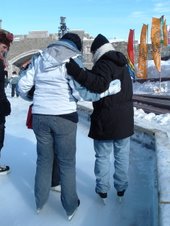
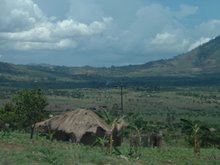

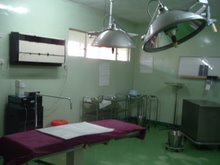
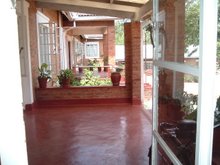



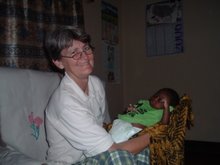



2 comments:
"the supplemental O2 only works when we have electricity, which we don't on Tuesdays."
One of my aunts was involved in setting up a school for blind children in Ethiopia back in the early 90s. She grew accustomed to planning the school timetable according to the days when there were electricity and water rather than any academic rationale.
Your description of how the women have no means of obtaining hospital transport reminded me of recent conversations with neighbours who had insisted on transport to a hospital under half a mile away although they had recently driven on a 500 mile round-trip for a holiday and are planning a round-trip 180 weekend away.
Regards - Shinga
Sari can close her eyes, LOL, bring a camera!
Post a Comment